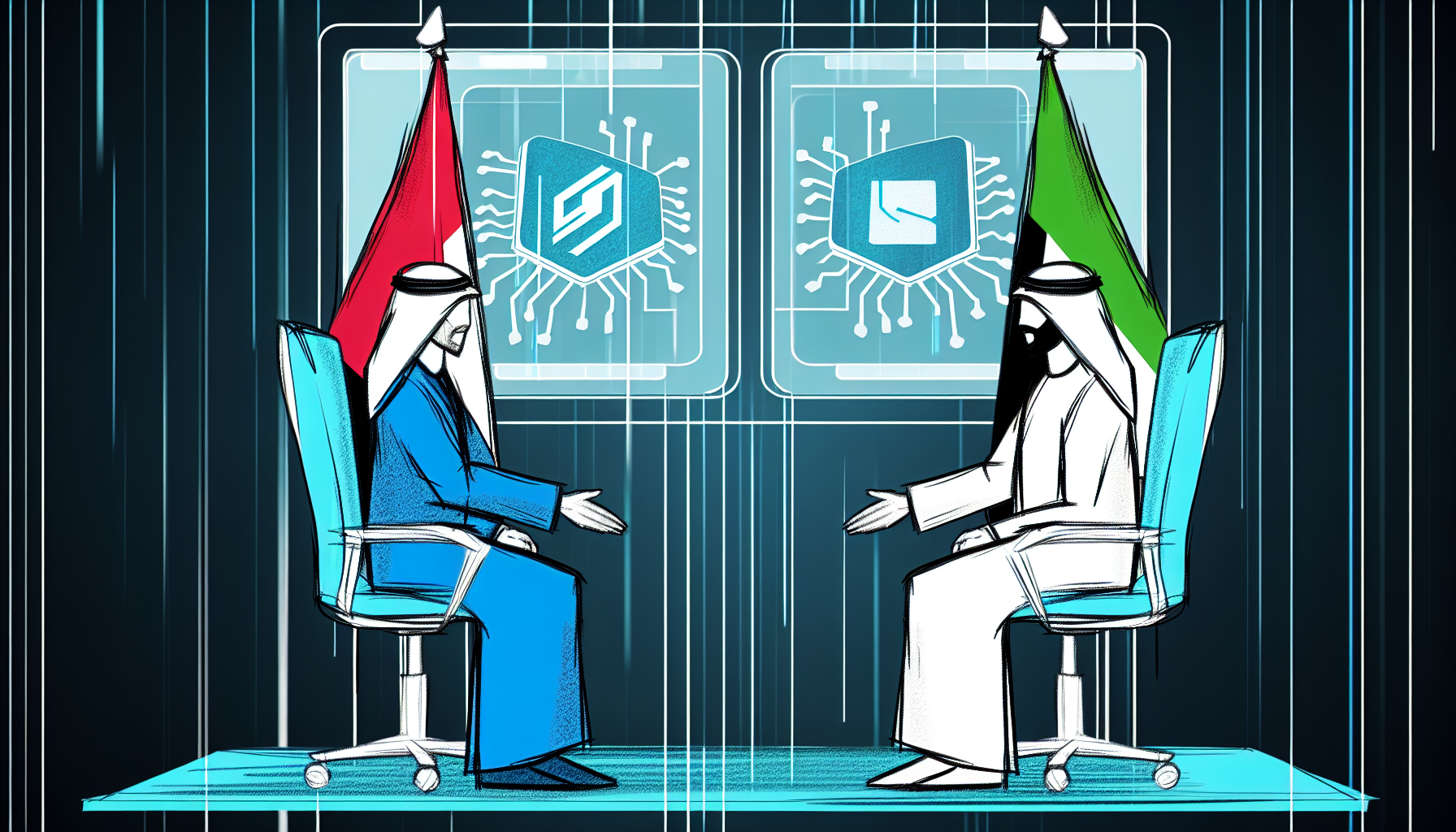# UAE's Tech Diplomacy: A Strategy to Access US Chip Tech
In an era where technology is as much a part of national strategy as defense and economics, the United Arab Emirates (UAE) is making significant strides. Particularly, the UAE's push to secure easier access to U.S. chip technology marks a pivotal step in its broader tech diplomacy efforts. This initiative is not just about enhancing the UAE's technological capabilities but also about securing a place at the table in global tech negotiations.
Understanding the Strategic Importance of Chip Technology
Looking to implement AI in your business? Our AI Automation Playbooks provide step-by-step guidance for seamless integration.
Chip technology, or semiconductor technology, is foundational to modern digital economies. It powers everything from smartphones and computers to advanced defense systems and critical infrastructure. The control over and access to this technology is a significant lever of power in global politics.
For the UAE, a nation known for its ambitious economic diversification plans, securing access to advanced chip technology is crucial. This move is aligned with its broader vision to position itself as a hub for technology and innovation in the Middle East and beyond.
#
The Role of Semiconductors in Economic and National Security
Semiconductors are integral not only to consumer electronics but also to emerging technologies like artificial intelligence (AI), quantum computing, and the Internet of Things (IoT). These technologies are set to define the next phase of global economic development. Thus, having a hand in the semiconductor industry offers substantial economic and strategic benefits.
UAE's Approach to Tech Diplomacy
The UAE's approach to securing U.S. chip technology is multifaceted, involving diplomatic negotiations, partnerships with global tech firms, and investments in tech infrastructure. By leveraging its strategic geopolitical position and economic resources, the UAE aims to create a conducive environment for technology transfers and collaborations.
#
Building Strategic Partnerships
One of the key strategies employed by the UAE is forming strategic partnerships with leading global tech companies and participating in international tech consortia. These partnerships help facilitate the transfer of technology and expertise, while also embedding the UAE within the global tech ecosystem.
#
Investing in Local Tech Infrastructure
The UAE is also investing heavily in its local tech infrastructure to create an attractive environment for international tech firms. This includes the development of high-tech parks, research centers, and innovation hubs that offer state-of-the-art facilities and incentives for tech companies.
Impact on the Global Tech Landscape
The UAE's aggressive push into the tech sector, particularly its focus on chip technology, is likely to have a broad impact on the global tech landscape.
#
Shifts in Global Tech Alliances
As the UAE becomes more deeply integrated into the global tech ecosystem, it could influence how tech alliances are formed and maintained. Its strategic location and political stability make it an attractive partner for Western tech firms looking to expand their influence in the Middle East and Asia.
#
Innovation and Competition
Increased access to chip technology could also spur innovation within the UAE, leading to the development of new technologies and products. This could enhance competition in the tech sector, potentially lowering costs and accelerating the pace of innovation globally.
Challenges and Considerations
Despite the clear strategic benefits, the UAE's pursuit of U.S. chip technology is not without challenges. Regulatory hurdles, geopolitical tensions, and the complexities of international tech transfer all pose potential obstacles.
#
Navigating Geopolitical Tensions
The tech sector is increasingly becoming a focal point of global geopolitical tensions, particularly between the U.S. and China. The UAE must navigate these tensions carefully to avoid becoming entangled in broader tech conflicts that could hinder its access to technology.
#
Ensuring Sustainable Development
Moreover, there is the challenge of ensuring that technology transfer and development are sustainable and do not lead to dependency on foreign tech firms. Developing local expertise and capabilities will be critical to the UAE's long-term success in the tech sector.
Further Reading
Expand your knowledge with these related articles from our experts:
- Global Drone Markets: Asia's Skyward Surge - Dive deeper into technology insights
- Supersonic Silence: The XB-1 Jet's Quiet Breakthrough - Dive deeper into technology insights
Want exclusive access to advanced insights? Check out our Pro Membership for premium content and tools. Members get 50% off all digital products.
Conclusion
The UAE's strategy to access U.S. chip technology through tech diplomacy is a testament to the increasingly strategic role of technology in global affairs. By securing easier access to these technologies, the UAE not only enhances its own economic and strategic standing but also positions itself as a key player in the global tech arena. However, the success of this initiative will depend on careful navigation of geopolitical challenges and a focused commitment to sustainable development in the tech sector. As the UAE continues to advance its tech diplomacy, it will likely emerge as a pivotal hub in the international tech landscape, influencing trends and alliances far beyond its borders.
